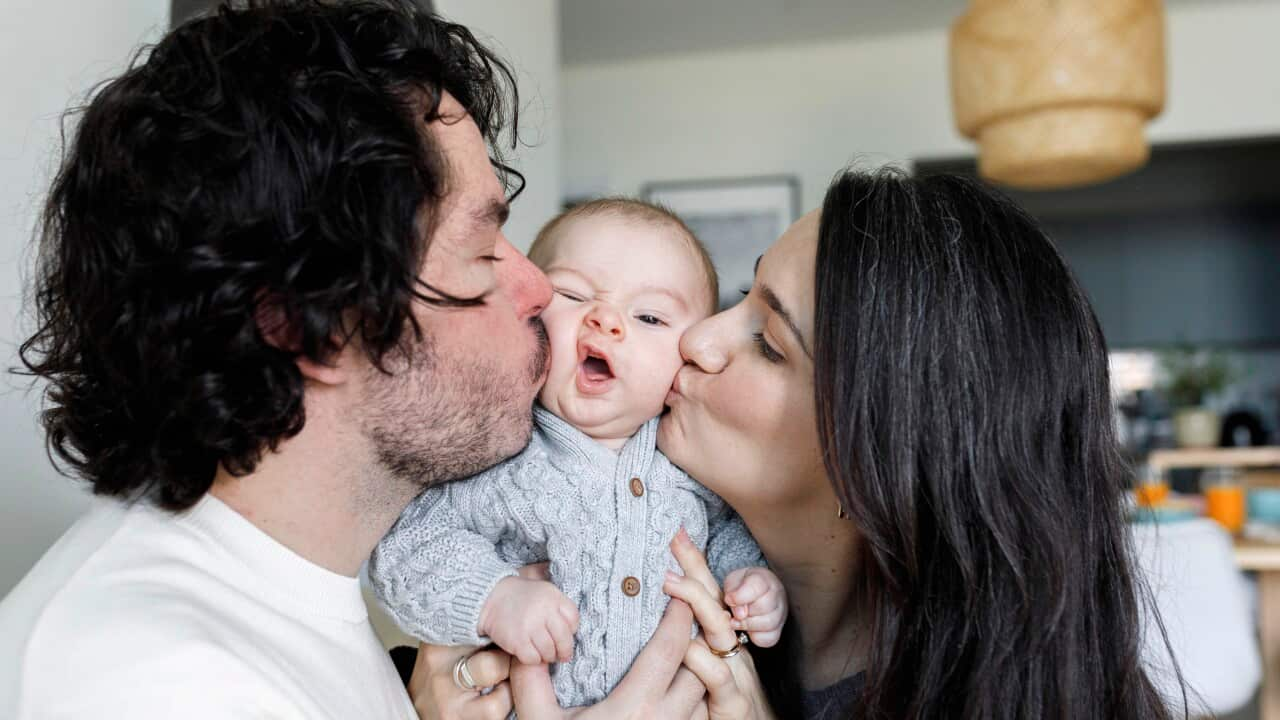Key points
- Genetic research suggests that if one parent has autism, the child may most likely develop autism too
- Autism is more prevalent in young boys than in young girls
- 40,000 participants from migrant communities are receiving support from the NDIS
Autism is internationally recognised every year on April 2 on World Autism Day. It has three most common classifications: Autistic Disorder, Asperger’s Syndrome and Pervasive Developmental Disorder.
Autism Spectrum Australia says nearly one in 80 Australians live with some form of autism, which is an estimated 40 per cent increase since 2014.
Early detection and intervention
In babies and toddlers, autism is associated with poor communication wherein they lack facial expressions, eye contact and basic body language.
LISTEN TO

Helping autistic children thrive with early diagnosis and support
SBS English
30/03/202108:41
Kari Nicol’s son Chase was hitting all his milestones until he was 18 months old. But then he began regressing and stopped clapping his hands, singing along to his favourite song and even stopped trying to speak. She says an early diagnosis not only helped her son access support but also made her understand the condition better.
She says an early diagnosis not only helped her son access support but also made her understand the condition better.

Out of the 430,000 Australians receiving support under NDIS, almost 140,000 have autism. Source: Getty Images
“I couldn't even imagine what my life would be like right now with a four-year-old on the spectrum and not having the help that I have and we've had for two years,” she says.
Paediatrician Dr Raj Khillan lists some signs that parents should look for.
When a child’s verbal and non-verbal communication, social communication, social and play skills are poorer than expected for that age and have a repetitive stereotypical pattern of behaviour, you can consider these to be early signs of autism.
Migrants and refugees face additional challenges
Making friends and having strong connections with their peers are important parts of a child’s development. But Sarah Wood, the head psychologist at Learning for Life Autism Centre, says autistic children often find it difficult to develop such connections. “This could be because they [autistic kids] see the social world differently to us and maybe don't pick up on the kind of gestures or the change in tone of voice and things like that- that comes to us naturally.”
“This could be because they [autistic kids] see the social world differently to us and maybe don't pick up on the kind of gestures or the change in tone of voice and things like that- that comes to us naturally.”

A survey conducted by Amaze shows a low level of understanding about autism. Source: Getty Images
Support for Autism in Australia
Amaze, a Victorian not-for-profit organisation set up by the families of autistic children, works to build understanding and support for people with autism.
It’s deputy CEO, Nicole Rees, says navigating autism can be particularly challenging for some refugee and migrant communities due to cultural and language barriers.
“We know that some refugee communities and migrant communities are less likely to be regularly connecting with their child and maternal health nurse or with kindergarten or with GPs, and those services and support play such an important role in early detection.”
There’s a risk that communities are easily falling through the cracks of our support system and there's lots of different reasons for that.
Out of the 430,000 Australians receiving support under the National Disability Insurance Scheme, almost 140,000 have autism, and a majority of the recipients is children. “The scheme works with individuals and their families to identify supports that could range from things like occupational therapy, behavioural therapy, psychologists and also any day-to-day supports that their disability may require,” says NDIS Branch Manager Shannon Rees.
“The scheme works with individuals and their families to identify supports that could range from things like occupational therapy, behavioural therapy, psychologists and also any day-to-day supports that their disability may require,” says NDIS Branch Manager Shannon Rees.

Navigating autism can be particularly challenging for some refugee and migrant communities. Source: Getty Images
The NDIS also provides a community connectors programme and a translation service which are targeted efforts designed to reach out to multicultural and diverse communities.
Amaze has an ongoing programme of online webinars that anyone can tune into. The topics range from autism in teenage girls to autism in working individuals. Apart from this, Amaze also runs peer support groups that connect families. Some of these webinars are also language-based support groups which can be particularly helpful for culturally diverse communities.
For more information on Autism Spectrum Disorder, please go to
Autism Connect helpline: 1300 308 699







